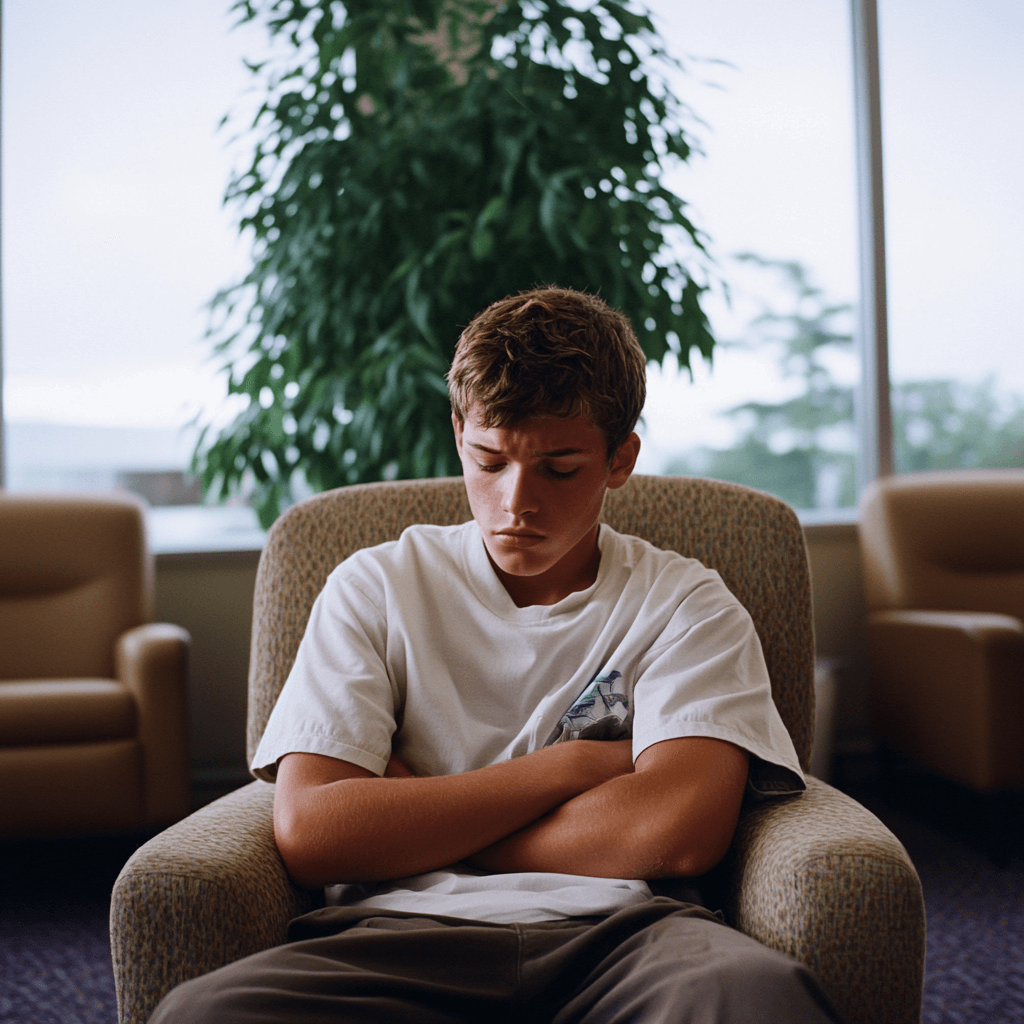What is Alcohol Induced Psychosis?
Psychosis associated with alcohol can occur with acute intoxication, alcohol withdrawal, as well as in patients with chronic alcohol use disorder. The specific diagnosis of alcohol induced psychosis is also known as alcohol hallucinosis. It is a relatively rare consequence of alcohol use. However, it may be more prevalent than classically thought depending on the inclusion criteria used for diagnosis. In alcohol-related psychosis, symptoms of psychosis present during or shortly after heavy alcohol intake. Clinically, alcohol induced psychosis is similar to schizophrenia but has been found to be a unique and independent condition. It is characterized by hallucinations, paranoia, and fear. [1]
Can Alcohol Cause Psychosis
Alcohol poisoning psychosis is sometimes called acute intoxication. It occurs after an individual consumes a very large amount of alcohol. Sometimes, symptoms can occur while the person is intoxicated. Other times they occur when the body is clear of alcohol.
People can experience severe aggression or psychotic reactions for several hours. Often, they won’t remember anything (amnesia) following the psychotic episode.

Other factors such as hypoglycemia (low blood sugar) or psychotropic drugs (e.g., stimulants) can increase the risk of developing alcohol poisoning and alcohol induced psychosis. Alcoholic hallucinosis occurs after years of chronic alcohol abuse. It shares some symptoms with delirium tremens psychosis.
For example, psychotic symptoms can include:
- Vivid, auditory hallucinations
- Visual hallucinations
- Paranoia
- Persecutory delusions (the sensation of being chased)
- Fear
- Mood swings
Hallucinations are often auditory with alcoholic hallucinosis. Mood disturbances are common as well.
The periods of psychoses last longer with alcoholics. They may last hours, days, or weeks. This makes alcoholic hallucinosis seem like paranoid schizophrenia. However, there has been no genetic connection shown between the two conditions.
Alcohol Induced Psychosis Symptoms
As with any form of psychosis, patients with alcohol induced psychosis may present with a wide range of symptoms. However, the presence of significant hallucinations or delusions must be evident. The psychosis is more extreme than what could potentially be attributed to alcohol intoxication or withdrawal. Special attention should be paid to mental status including flat affect or responding to internal stimuli. Additionally, a good physical exam needs to be done to look for possible trauma or infectious causes of altered mental status.
Psychosis is sometimes thought of as a break with reality because the cognitive and perceptual changes associated with certain psychotic illnesses may give rise to symptoms such as seeing, hearing, or feeling things that aren’t there, as well as unwarranted thoughts or persecutory beliefs.
Other symptoms of alcohol induced psychosis may include: [2]
- Disturbed thoughts or perceptions
- Poor executive functioning
- Trouble thinking clearly or concentrating
- Memory problems
- Difficulty understanding what is real
- Behavior that is inappropriate for the situation
- Incoherent speech
- Delusions
- Hallucinations

Approximately 3 out of every 100 people will experience some form of psychosis in their lifetimes, with many first psychotic episodes appearing in their later teen years or early 20s. [3] Although the causes of psychosis are not fully understood, it is likely that a combination of factors may contribute to its development; for example, genetics (e.g., a positive family history of psychosis or psychotic disorders), life experiences, certain chemical imbalances in the brain, and alcohol or drug use may all be associated with the development of psychotic disorders.
Types of Alcohol Induced Psychosis
Alcohol induced psychosis consists of three different types, as mentioned earlier. Warning Signs of the condition can appear either during or after alcohol consumption.
Some warning signs of alcohol induced psychosis include:
- Difficulties concentrating or thinking with a clear mind
- Self-care or hygiene suddenly begins to decline
- Hearing or seeing things that others don’t
- Intense, aggressive emotions or outbursts
Alcohol-Induced Wernicke-Korsakoff Syndrome
Wernicke-Korsakoff syndrome (WKS) refers to a thiamine (vitamin B1) deficiency. Excessive long-term alcohol consumption can cause thiamine loss in the body. This leads to brain damage and can cause hallucinations and memory loss. It can also damage your liver, gastrointestinal tract, and pancreas.
Wernicke encephalopathy is the acute version and symptoms include:
- General confusion
- Loss of mental activity
- Loss of muscle coordination
- Tremors
- Strange eye movements
- Vision changes (double vision)
Korsakoff syndrome is the chronic (long-lasting) version and symptoms include:
- Memory loss (similar to dementia)
- Inability to form new memories
- Hallucinations
- Delusions
These conditions may present the same symptoms as alcohol-induced psychosis. However, your mental abilities will continue to deteriorate with Wicke-Korsakoff Syndrome.
The Wernicke-Korsakoff syndrome is caused directly by thiamine deficiency. Memory loss is often an indicator of WKS.
Alcoholic Delirium Psychosis
Delirium tremens psychosis occurs during alcohol withdrawal syndrome. Individuals will begin to experience delirium within 4 to 7 days of stopping alcohol consumption. Symptoms of the condition will include:
- Sensitivity to sensory inputs (lights, sounds, touch, etc.)
- Disorientation
- Severe confusion, fear, or agitation
- Visual and auditory hallucinations
- Persecutory delusions (the sensation of being chased)
- High blood pressure, temperature, and pulse
- Mood swings
Individuals with this condition require medical support. A supervised program can help them detox. Sedatives like benzodiazepines may also be necessary. If left untreated, delirium tremens psychosis can become life-threatening.
Alcohol Induced Psychosis Withdrawal
If you’re experiencing alcohol-induced psychosis, it’s a sign that you are suffering from an alcohol use disorder. For many people, once they stop abusing alcohol, the symptoms of the psychosis will begin to fade. Due to the solid mental health component, attending addiction treatment specializing in dual diagnosis disorders is recommended. It can treat Alcohol-induced psychosis, and the first step is breaking free from alcohol addiction. And with the right detox program, you’ll be able to minimize the symptoms of psychosis during withdrawal. [3]
Alcohol withdrawal symptoms can start as early as two hours after your last drink, but it’s most likely to start between six hours to a day after your last drink.
Withdrawal can be broken down into four stages with distinct symptoms.
Stage 1: 6 to 12 Hours After Last Drink
The first stage of alcohol withdrawal usually sets in 6 to 12 hours after the last drink. These minor withdrawal symptoms can include:
- Anxiety
- Insomnia
- Nausea
- Loss of appetite
- Sweating
- Headache
- Increased or irregular heartrate

Stage 2: 12 to 24 Hours After Last Drink
Alcoholic hallucinosis may occur 12 to 24 hours after the last drink and may continue up to 48 hours after the last drink. It can involve the following types of hallucinations:
- tactile hallucinations, such as having a sense of itching, burning, or numbness that isn’t actually occurring
- auditory hallucinations, or hearing sounds that don’t exist
- visual hallucinations, or seeing images that don’t exist
It’s rare for people going through alcohol withdrawal to experience hallucinations more than 48 hours after their last drink.
Stage 3: 24 to 48 Hours After Last Drink
Withdrawal seizures are most typically experienced 24 to 48 hours after the last drink.
Stage 4: 48 to 72 Hours After Last Drink
AWD sets in 48 to 72 hours after the last drink. Most symptoms will typically peak five days after they begin and will begin to decrease about five to seven days after they begin.
Alcohol Induced Psychosis Infographic
Alcohol-related psychosis can strike those experiencing acute intoxication, alcohol withdrawal, and long-term alcohol use disorders. Alcohol hallucinosis is another name for the specific diagnosis of alcohol-induced psychosis.

Embed the above “Alcohol-Induced Psychosis” Infographic to your Website. This infographic is provided by the We Level Up Addiction Treatment Center team. To use the above infographics, you agree to link back and attribute its source and owner at https://weleveluptx.wpengine.com/alcohol-induced-psychosis/
Alcohol Induced Psychosis image link: https://weleveluptx.wpengine.com/wp-content/uploads/2024/01/Alcohol-Induced-Psychosis-Symptoms-1024×1024.png

Embed the above “Alcohol-Induced Psychosis” Infographic to your Website. This infographic is provided by the We Level Up Addiction Treatment Center team. To use the above infographics, you agree to link back and attribute its source and owner at https://weleveluptx.wpengine.com/alcohol-induced-psychosis/
Alcohol Induced Psychosis image link: https://weleveluptx.wpengine.com/wp-content/uploads/2024/01/Alcohol-Induced-Psychosis-Warning-Signs-1024×1024.png
Alcohol Induced Psychosis & Addiction Treatment
The priority is to stabilize the patient paying close attention to airway, breathing, and vital signs. If the patient requires sedation due to alcohol-related psychosis, neuroleptics, such as haloperidol, have been considered the first-line medications for treatment. Benzodiazepines, such as lorazepam, are used if there is a concern for alcohol withdrawal and seizures. Certain atypical antipsychotics, such as ziprasidone and olanzapine, have also been used to help sedate patients with acute psychosis. Some patients may require the use of physical restraints to protect the patient as well as the staff. Patients with alcohol-related psychosis must also be evaluated for suicidality since it is associated with higher rates of suicidal behaviors. [4]
In general, most cases of alcohol-related psychosis come to light when patients are admitted to the hospital and then develop withdrawal symptoms with or without delirium tremens. The presence of alcohol-related psychosis usually is an indicator of something very serious and if not treated promptly can lead to negative outcomes. Healthcare workers should be familiar with this disorder and make appropriate recommendations to specialists if they have such a patient. Besides psychosis, these patients have a much higher rate of anxiety, depression, and suicide. In addition, the patients can be unpredictable and resort to violence. These patients need to be managed by an interprofessional team of allied healthcare workers to mitigate morbidity and mortality.
Dual Diagnosis Approach To Alcohol Induced Psychosis
For those suffering from addiction, We Level Up Texas is here. As a licensed and accredited rehabilitation center, we are dedicated to helping you meet your goals, one day at a time.
While psychosis can develop temporarily due to excessive alcohol consumption, it may also be a symptom of a co-occurring psychotic disorder, like schizophrenia, schizoid personality disorder, or schizotypal personality disorder. In these cases, a dual diagnosis alcohol rehab treatment program that addresses both the alcohol use disorder and psychological condition is vital to long-term recovery.
In an effort to help you find and maintain sobriety, we favor a personalized approach to care. From the moment you begin with us, our counselors will help you find a path that fits with your background, your substance(s) of choice, your lifestyle, your interests, and your unique needs.

To best customize our services to your needs, our programming includes:
1. Family Therapy
2. Individual Therapy
3. Humanistic Therapy
4. Group Addiction Therapy
5. Cognitive Behavioral Therapy
6. Mindfulness Training for Stress Reduction
If you are considering addiction treatment for you or someone you love, We Level Up Texas can help. Please contact us today for a confidential consultation with a member of our intake team.
If you or a loved one is dealing with alcohol-induced psychosis or other drugs, and especially if you have experienced multiple relapses in the past, then look no further. With an incredible success rate for long-term recovery, We Level Up TX treatment center offers one of the most comprehensive addiction recovery programs available in The United States, bringing hope to families each and every day.
Contact us today for admission and inquiries, we have a 24-hour helpline. There’s no obligation. Calls are 100% confidential.
Sources:
[1] Alcohol Related Psychosis – National Center for Biotechnology Information, U.S. National Library of Medicine
[2] First-Episode Psychosis and Co-Occurring Substance Use Disorders – Substance Abuse and Mental Health Services Administration
[3] FACTS ABOUT PSYCHOSIS – National Institute of Mental Health
[4] We Level Up – Addiction » Alcohol-Induced Psychosis





